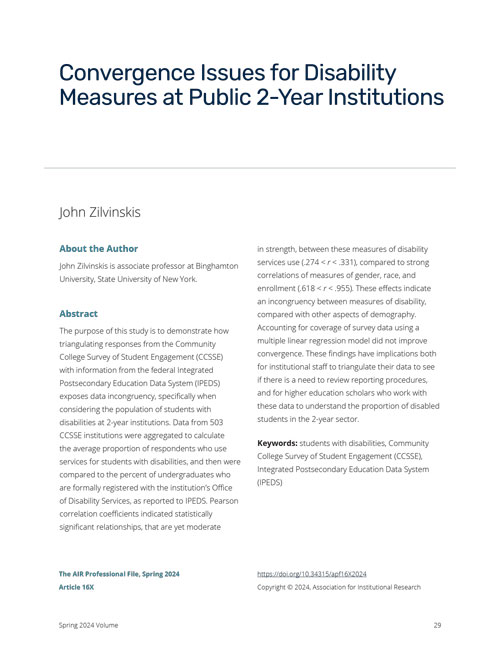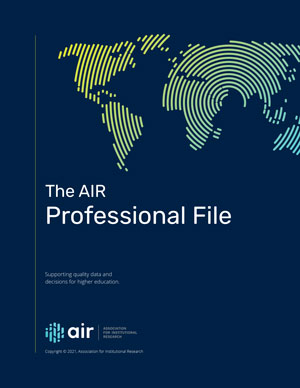The AIR Professional File
Spring 2024, Article 166
Convergence Issues for Disability Measures at Public 2-Year Institutions
https://doi.org/10.34315/apf1662024Abstract
The purpose of this study is to demonstrate how triangulating responses from the Community College Survey of Student Engagement (CCSSE) with information from the federal Integrated Postsecondary Education Data System (IPEDS) exposes data incongruency, specifically when considering the population of students with disabilities at 2-year institutions. Data from 503 CCSSE institutions were aggregated to calculate the average proportion of respondents who use services for students with disabilities, and then were compared to the percent of undergraduates who are formally registered with the institution’s Office of Disability Services, as reported to IPEDS. Pearson correlation coefficients indicated statistically significant relationships, that are yet moderate in strength, between these measures of disability services use (.274 < r < .331), compared to strong correlations of measures of gender, race, and enrollment (.618 < r < .955). These effects indicate an incongruency between measures of disability, compared with other aspects of demography. Accounting for coverage of survey data using a multiple linear regression model did not improve convergence. These findings have implications both for institutional staff to triangulate their data to see if there is a need to review reporting procedures, and for higher education scholars who work with these data to understand the proportion of disabled students in the 2-year sector.
Keywords: students with disabilities, Community College Survey of Student Engagement (CCSSE), Integrated Postsecondary Education Data System (IPEDS)
Author:
- John Zilvinskis
Copyright © Association for Institutional Research 2024


